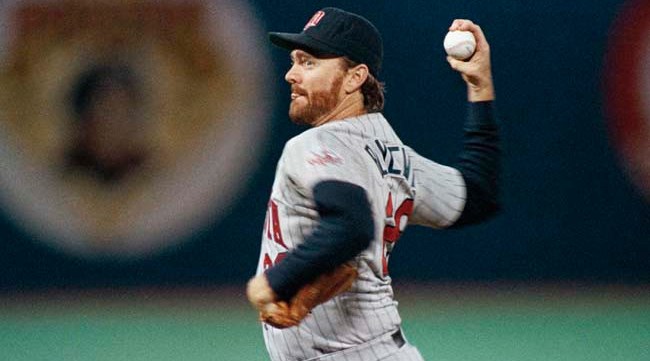MINNESOTA 10, BALTIMORE 4 IN BALTIMORE
Date: Monday, May 11.
Batting stars: Tom Brunansky was 3-for-5 with a home run (his fifth) and a walk, driving in three. Tom Nieto was 2-for-5 with a three-run home run and a double, Gary Gaetti was 3-for-4 with a walk and three runs.
Pitching star: Bert Blyleven pitched a complete game, giving up four runs (three earned) on eight hits and a walk with five strikeouts.
Opposition stars: Fred Lynn was 2-for-4 with a home run, his fourth. Eddie Murray was 1-for-4 with a home run, his eighth. Cal Ripken was 1-for-4 with a home run, his tenth.
The game: Nieto hit a three-run homer as part of a four-run second that put the Twins up 5-0. Brunansky hit a two-run homer in the third to make it 7-1. The Orioles never got closer than five runs after that.
Of note: Kirby Puckett was 1-for-5 with an RBI and was batting .333. Baltimore starter Scott McGregor lasted only 2.1 innings, allowing seven runs (six earned) on six hits and three walks with no strikeouts.
Record: The Twins were 17-14, in third place, a half-game behind California and Seattle.
Notes: Al Newman started at shortstop in place of Greg Gagne, who was used as a defensive replacement late in the game...Mark Davidson was in right field, with Brunansky the DH and Roy Smalley out of the lineup..Solo home runs didn't hurt Blyleven in this game, as he left pitches up to Lynn, Murray, and Ripken to account for the only three earned runs he gave up...This was Blyleven's second complete game in seven starts. He would have eight on the season...This is another case of a complete game that would never happen in today's game.
Player profile: Tony Arnold relieved McGregor and pitched 4.2 innings, giving up two runs. I have absolutely zero memory of him. He was a Texan, born in El Paso, went to high school in Irving, and attended the University of Texas. He was a tenth round draft choice of the Orioles in 1981 and remained in their organization through 1987. A right-hander, he was a starter for most of his minor league career, but when he struggled in AAA he moved to the bullpen. He made his big-league debut in August of 1986 and pitched well enough for the Orioles in eleven appearances. He started the 1987 season with Baltimore and was consistently inconsistent, having some good outings but mixing in enough bad ones that one would imagine the Orioles never really felt they could count on him. After consecutive poor outings in early July he was sent to AAA. He came back as a September call-up, but never made it back to the majors after that. He spent 1988-89 in the minors with the Dodgers and then his playing career was over. He has stayed in baseball as a minor league pitching coach, in the Dodgers organization from 1990-92 and since then with Cleveland. One suspects he may have had a hand in developing some of the pitchers we've watched in the World Series this year. He was the pitching coach of the Akron Rubber Ducks in 2016. Given how long he's been involved in baseball, I feel like I should have heard of him, but if I ever did, I forgot. He's had a pretty good coaching career, though, so good for him.


In 2016, Chris Sale had the only 9-inning complete game by a starter that allowed 4 runs or more. He also allowed 4 runs but only 2 were earned in a 7-4 win over the Royals. It's really rare these days for a starter to not be dominating and still be allowed to finish a game with a decent lead no matter how much teams complain about their bullpen being overused. I think a starter "eating" innings is greatly underappreciated. Too many managers manage to avoid a very slight risk of catastrophe today (blowing a 3-run or greater lead in the ninth) instead of looking ahead to help the team in a very long season. I think we saw that to a greater degree in the World Series when both managers used their top relievers earlier than usual in games despite pretty significant leads and I think it played a part in the Cubs being forced to go extra innings to win it.
I wonder what percent is risk aversion for the score versus risk aversion to high pitch counts.